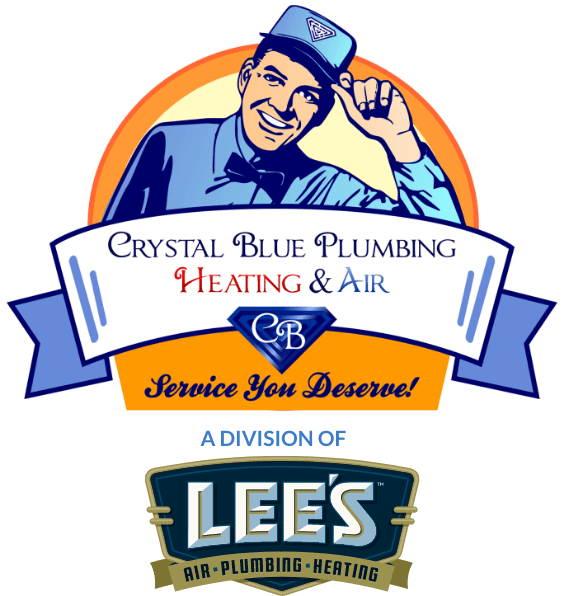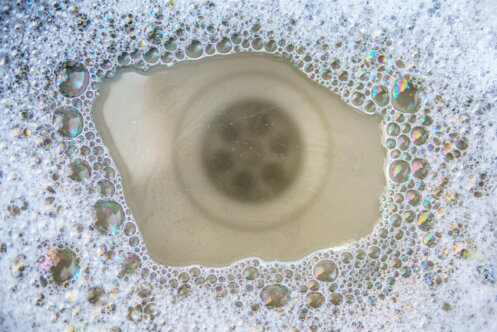How to Prevent Sewer Backup During the Rainy Season
Sewer backups can cause a lot of problems. If your sewer backs up, you have to worry about unpleasant smells, a big mess in your home, the possibility of your family members and pets coming into contact with contaminated water, and potentially expensive repair issues. It’s always important to think about your sewer system to help prevent unnecessary problems, but backups can be even more of a concern during the rainy season. Luckily, there are a few things you can do as a homeowner to prevent sewer backups from being a problem. At Crystal Blue Plumbing, Heating & Air in Sacramento, we are more than happy to assist you with all of your sewer and plumbing needs.
1. Have Your Sewer Lines Inspected by a Professional
First of all, if there are issues with your sewer lines, you can expect backups and other issues. It’s best if you can detect and address issues with your sewer lines as soon as possible. An experienced plumber will have the equipment and experience to properly inspect your sewer lines and assist you with any further steps if repairs are needed. For example, at Crystal Blue Plumbing, Heating & Air, we perform video line inspections using a small digital camera and a long fiber optic cable. This allows us to thoroughly check for clogs, breaks, and other possible problems, all without the need to dig up your yard in the process.
If you have been having sewer-related issues, it’s a good idea to call a plumber to come and check for problems with your lines. Even if you haven’t noticed any problems, having a professional inspection done regularly can help you stay ahead of any potential issues. After all, sewer line problems are not always immediately noticeable, but addressing the problem sooner rather than later can help you avoid backups and excessive repair costs.
2. Have a Backflow Prevention Device Installed
A backflow prevention device, which is also commonly known as a check valve, is designed to prevent plumbing backups. If you don’t already have one installed, now is the time to hire a professional plumber to assist you.
These devices are quite simple but do a very important job. Basically, a backflow prevention device works as a one-way valve that only allows wastewater to move in one direction. This means that once one of these devices is installed, it will allow wastewater to travel out of your home. However, it will then close off so that water is unable to move in the opposite direction, from the outside to the inside of your home. Plumbers from Crystal Blue Plumbing, Heating & Air can talk to you a little more about how these devices work and their benefits, and they can assist with a professional installation.
3. Install a Sump Pump in Your Basement
Although a sump pump is not actually designed to prevent sewer backups, this doesn’t mean it isn’t something you shouldn’t have. For one thing, a sump pump can prevent flooding in your basement. Additionally, in the event of a sewer backup, it can be used to remove wastewater from inside your home. It can also help prevent main line or sewer clogs. How large or powerful your sump pump should be depends on things like the type of soil on your property, the amount of rain that your area normally gets during a rainy season, whether or not your basement is below the water table, and more. Professional plumbers can help you choose a sump pump for your home, and they can ensure the system is installed and properly functioning. Of course, once your sump pump is installed, make sure you keep up with recommended professional maintenance to keep it functioning properly. This can help you avoid basement flooding and a variety of other issues.
4. Be Careful About What You Flush
To prevent issues with your plumbing and sewer lines, it’s critical to be careful about what you flush down the toilet or what you pour down the drains. The only things that should be flushed down a toilet are human waste and toilet paper. Paper towels, feminine hygiene supplies, cat litter, condoms, or other items should not be flushed down the toilet. Additionally, unless you have a garbage disposal, you should avoid pouring food scraps or coffee grounds down your sink. Pouring grease down your sink can also contribute to plumbing and sewer line problems. If you have questions about what you can and can’t safely flush down the toilet or pour down your sink drains, a professional plumber can provide you with guidance and helpful information.
5. Clean Downspouts and Gutters Regularly
If you aren’t careful about managing rainwater on your property, you have to worry about it overwhelming your sewer system. Because of this, consider having gutters and downspouts installed, if you don’t have them already. If you do, you should make sure that you have your gutters and downspouts cleaned regularly to get rid of leaves, twigs, limbs, and other debris.
By installing gutters and keeping them clean, you can help ensure that rainwater is directed away from the sides of your home. This will help the water drain naturally rather than affecting your sewer system; just make sure that your gutters help direct water toward drainage ditches rather than sewer lines. Alternatively, you can collect the rainwater in barrels or containers and use it for other things, such as watering plants.
There are other benefits to having gutters or downspouts that function properly; for example, it can help prevent foundation-related damage and minor flooding in your yard during particularly rainy periods.
6. Keep an Eye on Tree Roots
Many people don’t realize just how much of an impact tree roots can have on sewage lines. Even with smaller trees, tree roots can spread surprisingly far from the base of the tree, and they can often travel much deeper into the soil than many people realize. If you have trees on your property, it’s key to get professional help, ensuring that the roots are not interfering with your sewer lines or that they aren’t at immediate risk of doing so. In some cases, tree and root removal might be necessary to prevent sewer line issues. In the future, you may want to keep the location of your sewer and plumbing lines in mind when planting trees to help prevent these issues.
7. Have Your Drains Professionally Cleaned
Even if you are careful about how you use your drains, they can still become clogged. For example, hair and soap scum can cause clogs that can contribute to sewer backup issues. Having your drains professionally cleaned regularly is a good way to prevent backups, get rid of unpleasant odors, and ensure that your drains are working as they should be.
Proper prevention can go a long way in preventing sewer backups from being an issue on your property. Luckily, Crystal Blue Plumbing, Heating & Air in Sacramento can help. We provide a variety of plumbing and sewer system services, including video pipe inspections, sewer repair, plumbing repair, water heater repair, water heater installation services, and much more. We also provide HVAC services, including HVAC maintenance, repairs, and installation. To find out how we can help you prevent sewer backup issues this rainy season, contact us at Crystal Blue Plumbing, Heating & Air today.








